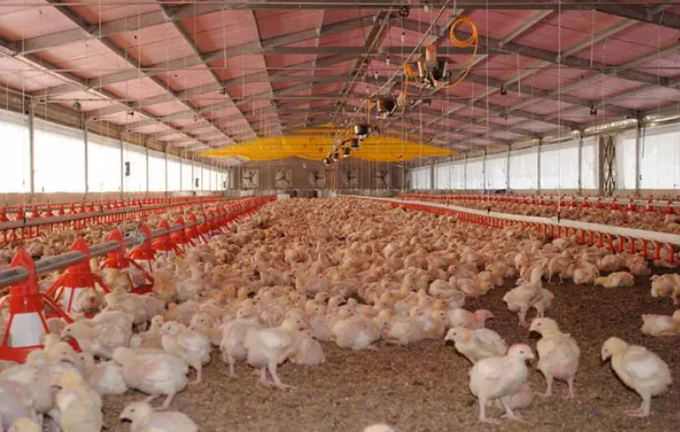June 8, 2025 | 01:46 GMT +7
June 8, 2025 | 01:46 GMT +7
Hotline: 0913.378.918
June 8, 2025 | 01:46 GMT +7
Hotline: 0913.378.918

Avian flu can be found in both wild and farmed birds. Outbreaks at poultry farms often result in large groups of chickens being slaughtered to stop the disease’s spread.
Chicken and eggs could be harder to find in parts of Mexico for a while due to an avian influenza outbreak in Sonora and Nuevo León, which could also send prices up for some customers.
Almost 300,000 chickens had to be slaughtered after the bird flu was detected on two farms in the Yaqui Valley near Ciudad Obregón, Sonora, and on one farm in Montemorelos, Nuevo León, according to federal agriculture authorities.
Plutarco Sánchez Patiño, an Agriculture Ministry official in Sonora, said that a total of 296,000 chickens were killed at the two Sonora farms, while agriculture sanitation authority Senasica said that that figure applied to the farms in both Sonora and Nuevo León.
Not all the chickens were infected with avian flu, but they were all destroyed to stop the disease’s outbreak from spreading, Sánchez said.
At the affected farms in Sonora and Nuevo León, Senasica specialists established the “relevant quarantine,” the authority said, adding that the “poultry production units,” or UPAs, were disinfected and depopulated.
The incidents also have made it harder for all farms located in the two states to do business for the time being, due to steps taken by Senasica.
“Due to the findings at the commercial UPAs, Senasica also ordered an internal quarantine in both states, which means that farms located in Sonora and Nuevo León can’t move poultry products that don’t have a permit from the federal health authority,” it said.
“… With the aim of avoiding the spread of the disease and protecting national consumption of poultry products, prior to moving [such products] UPAs must demonstrate via tests carried out at official laboratories that the products are free of [avian flu],” Senasica also said.
According to an Excélsior newspaper report, poultry suppliers and vendors in Sonora, as well as restaurants and rosticerías (rotisseries) have warned that there could be a serious shortage of chicken and eggs in the coming weeks due to the birds’ slaughter. Prices for those products are expected to rise due to the anticipated shortage.
Poultry suppliers said that measures to mitigate the risk of avian flu spreading, including a quarantine, would also contribute to the predicted scarcity.
Governor Alfonso Durazo chaired a meeting of a “special committee against avian influenza” on Saturday and subsequently reported on Twitter that it was a priority of the Sonora government to “comply with strict health controls to guarantee high safety standards in the food industry in our state.”
Alejandro Romero Ayala, an economist, told Excélsior that the anticipated shortage could worsen if avian flu spreads beyond the farms where it was detected. He recalled that some 22.3 million chickens were killed in 2012 after a bird flu outbreak in Jalisco.
Egg prices surged 40% as a result, while chicken prices rose 14%, according to central bank data.
Sonora and Nuevo León aren’t the only states where avian flu has been identified in recent weeks. Senasica said in a statement last Friday that it had detected the disease in birds in seven states, including on a family-run chicken farm in the southern state of Chiapas. Avian flu was also detected in wild birds in Baja California, México state, Aguascalientes and Jalisco, Senasica said.
Senasica said that the entry of bird flu to Mexico via migratory birds was “foreseeable” due to the presence of the disease in the United States and Canada. An animal health emergency protocol known as Dinesa was activated in June, and that has allowed agricultural authorities to respond quickly to avian flu outbreaks, Senasica said.
Bird flu viruses do not normally infect humans, according to the U.S. Centers for Disease Control and Prevention, but “sporadic human infections … have occurred.”
(Mexiconewsdaily)

(VAN) With the war ongoing, many Ukrainian farmers and rural farming families face limited access to their land due to mines and lack the financial resources to purchase needed agricultural inputs.

(VAN) Vikas Rambal has quietly built a $5 billion business empire in manufacturing, property and solar, and catapulted onto the Rich List.

(VAN) Available cropland now at less than five percent, according to latest geospatial assessment from FAO and UNOSAT.

(VAN) Alt Carbon has raised $12 million in a seed round as it plans to scale its carbon dioxide removal work in the South Asian nation.

(VAN) Attempts to bring down the price of the Japanese staple have had little effect amid a cost-of-living crisis.

(VAN) Fourth most important food crop in peril as Latin America and Caribbean suffer from slow-onset climate disaster.

(VAN) Shifting market dynamics and the noise around new legislation has propelled Trouw Nutrition’s research around early life nutrition in poultry. Today, it continues to be a key area of research.